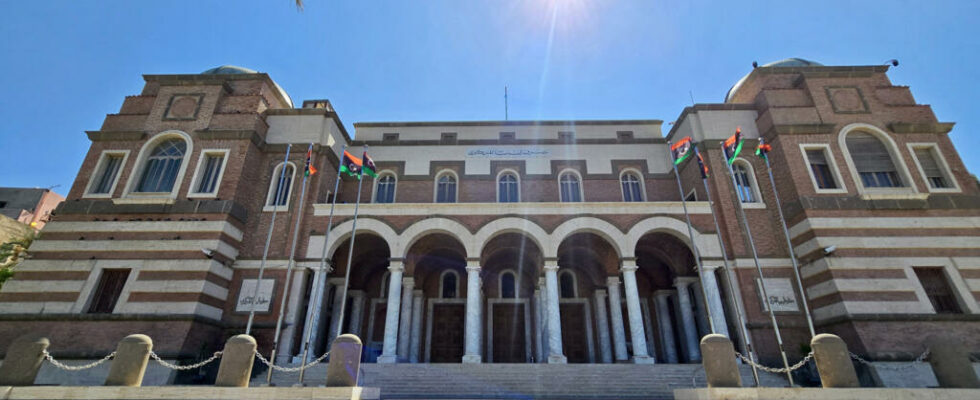Libya is once again shaken by power struggles between the two governments of the East and the West: the governor of the Central Bank was forced to flee on August 26, pushed out by the government of the West, led by Abdel Hamid Dbeibah. A UN mission was dispatched to the area. On Sunday, September 8, France, the United States and Great Britain urged Tripoli to find a rapid solution. The Libyan Parliament and High Council of State have one month to reach an agreement and appoint a new governor.
2 min
It is a strategic position: the central bank in Tripoli is the only one to control oil revenues. The installation at its head as interim governor of Abdel Fattah Ghaffar caused the immediate suspension of transactions of international banks with the Libyan Central Bank.
This appointment does not respect the 2015 political agreement ratified under the aegis of theUNThe man is therefore not recognized at the international level, explains Jalil Harchaoui, researcher at the Royal United Services Institute in London, at the microphone ofAlexis Bedu : ” The one who is presented by Prime Minister Dbeibah as being the new interim governor of the Central Bank, in reality is not. That is to say, he has taken control of the dinar systems [la monnaie locale, NDLR] in Libya. But for the thing that really matters a lot, which is the crux of the matter. – namely dollars, euros, pounds sterling – he does not have the possibility of having access to this money. It belongs to the Libyan Nation. »
Uncertainties over food imports
It is now impossible for Tripoli to issue letters of credit to import food or vaccines, for example. Shortages could quickly become apparent, according to Jalil Harchaoui: ” How will Libya import food in October 2024? I don’t know any Libyan, any foreign diplomat, who is able to answer this question, to measure the seriousness of the matter. »
The other consequence: oil production has stopped in the country. The measure was decided by the government of the East, of Marshal Khalifa Haftarwhich owns the main wells and which denounces the West’s takeover of the Central Bank.
In the grip of chaos since the fall and death of Muammar Gaddafi in 2011, Libya is governed by two rival executives: that of Abdelhamid Dbeibah based in Tripoli (west) and recognized by the UN, and another in the east, supported by Marshal Khalifa Haftar. Libya draws almost all of its resources from oil exploitation, whose production had recently returned to 1.2 million barrels per day (compared to 1.5 to 1.6 million before the 2011 revolution).
Also readLibya: Dismissed Central Bank Governor Claims He Fled Country
